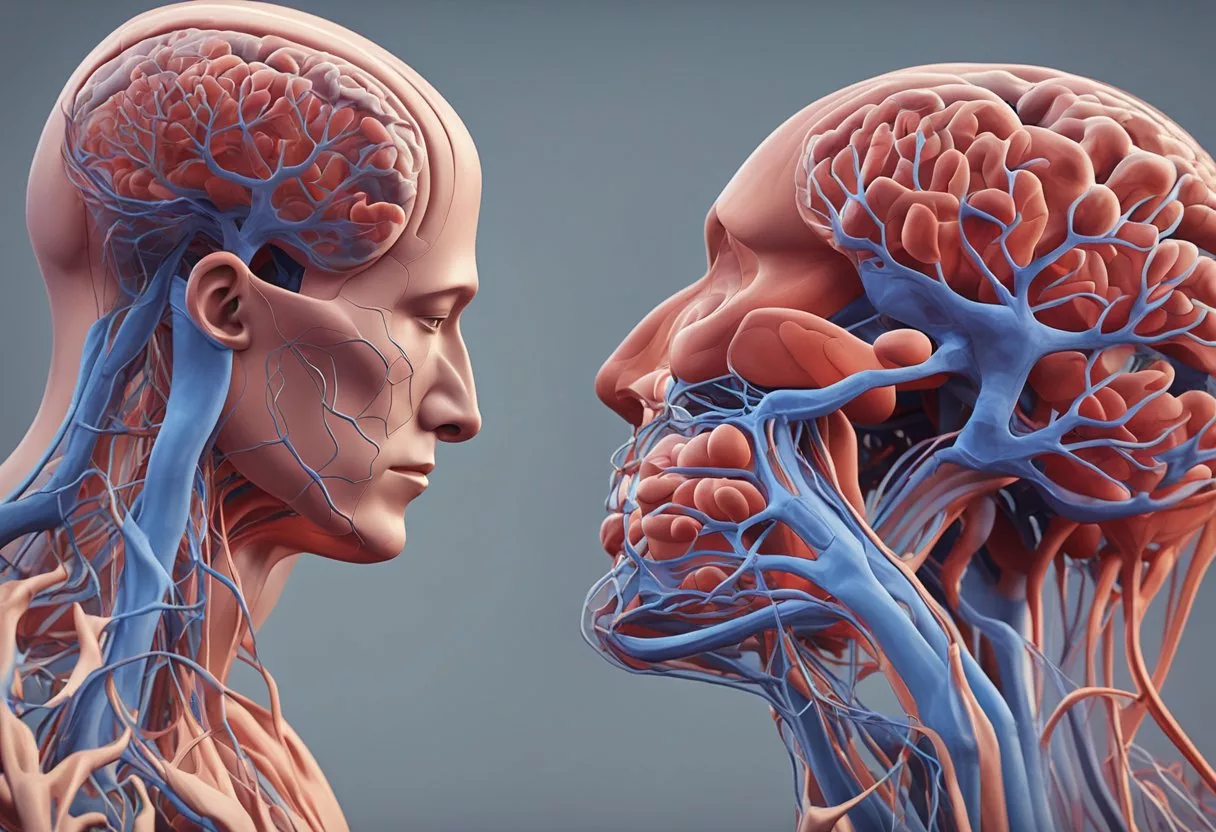Viagra is a medication used to treat erectile dysfunction (ED) in men. It is one of the most popular and effective treatments for ED, with millions of prescriptions written each year.
Viagra works by increasing blood flow to the penis, which helps men achieve and maintain an erection.

The active ingredient in Viagra is sildenafil, which belongs to a class of drugs called phosphodiesterase type 5 (PDE5) inhibitors. When a man is sexually stimulated, sildenafil helps to relax the blood vessels in the penis, allowing more blood to flow into the area. This increased blood flow results in an erection, which can last for several hours.
Despite its effectiveness, Viagra is not without its side effects and risks. Some common side effects of Viagra include headache, flushing, and indigestion. In rare cases, more serious side effects such as sudden vision loss or hearing loss have been reported.
It is important to talk to a healthcare provider before taking Viagra to determine if it is safe and appropriate for your specific health needs.
Key Takeaways
- Viagra is a medication used to treat erectile dysfunction in men.
- The active ingredient in Viagra is sildenafil, which works by increasing blood flow to the penis.
- While effective, Viagra may cause side effects and should only be taken under the guidance of a healthcare provider.
Mechanism of Action

Viagra, also known as sildenafil, is a medication used to treat erectile dysfunction and pulmonary arterial hypertension. The drug works by inhibiting the enzyme phosphodiesterase-5 (PDE5), which is responsible for breaking down cyclic guanosine monophosphate (cGMP).
Impact on Blood Flow and Erection
During sexual stimulation, nitric oxide (NO) is released in the corpus cavernosum of the penis, which activates the enzyme guanylate cyclase. This enzyme catalyzes the conversion of guanosine triphosphate (GTP) to cGMP, which causes smooth muscle relaxation and increased blood flow to the penis.
Viagra enhances this process by preventing the breakdown of cGMP, leading to increased blood flow to the penis and improved erectile function. However, sexual stimulation is still required to achieve an erection.
Role of Sexual Stimulation
It is important to note that Viagra does not cause an erection on its own. Sexual stimulation is necessary to activate the release of NO and subsequent activation of guanylate cyclase. Without sexual stimulation, the drug will not be effective in producing an erection.
Usage and Dosage

Recommended Dosage
The recommended starting dose of Viagra (sildenafil) is 50 mg, taken orally approximately one hour before sexual activity. However, the dose can be adjusted to 25 mg or 100 mg based on your response and tolerability. The maximum recommended dose is 100 mg per day.
It is important to note that Viagra should not be taken more than once a day. Additionally, it should not be taken with grapefruit or grapefruit juice, as this can increase the level of Viagra in the blood and lead to unwanted side effects.
Administration Guidelines
Viagra should be taken orally, with or without food. However, it may take longer to work if taken with a high-fat meal. It is also important to note that sexual stimulation is required for the medication to work.
Adjustments for Specific Conditions
For people with liver or kidney problems, the starting dose of Viagra should be 25 mg. Additionally, for those taking certain medications, such as ritonavir, ketoconazole, and itraconazole, the starting dose of Viagra should be 25 mg.
Make sure to inform your doctor about any medications or supplements you are taking, as well as any medical conditions, before taking Viagra. This includes people with low blood pressure, recent heart attack or stroke, or those taking nitrates for chest pain.
Generic Alternatives
Sildenafil, the active ingredient in Viagra, is also available as a generic medication. The dosage and administration guidelines for generic sildenafil are the same as those for Viagra.
Other PDE5 inhibitors, such as tadalafil (Cialis), vardenafil (Levitra), and avanafil (Stendra), are also available for the treatment of erectile dysfunction. Make sure to discuss with your doctor which medication is best for your specific needs and medical history.
Side Effects and Adverse Reactions
Viagra is a medication used to treat erectile dysfunction and pulmonary arterial hypertension. Like any medication, it can cause side effects and adverse reactions. It is important to understand the potential risks and benefits of taking this medication.
Common Side Effects
Common side effects of Viagra include headache, flushing, and low blood pressure. Other side effects may include dizziness, nausea, and chest pain. These side effects are usually mild and go away on their own. Speak with a doctor if these side effects persist or become severe.
Serious Adverse Reactions
Serious adverse reactions may occur while taking Viagra. These include sudden loss of vision or hearing, prolonged erection, and allergic reactions. In rare cases, Viagra can cause a sudden decrease in blood pressure, leading to fainting or even a heart attack. Seek medical attention immediately if any of these symptoms occur.
Allergic Reactions
Allergic reactions to Viagra are rare but can occur. Symptoms of an allergic reaction may include rash, swelling, and difficulty breathing. If an allergic reaction occurs, seek medical attention immediately.
Viagra can also cause blurred vision, loss of hearing, and back pain. In rare cases, it can cause a blue tinge to vision or sensitivity to light. Make sure to speak with a doctor if any of these symptoms occur while taking Viagra.
Contraindications and Precautions
Interactions with Medications
Viagra can interact with certain medications, including nitrates, nitroglycerin, and riociguat (Adempas). Taking Viagra with nitrates can cause a sudden and dangerous drop in blood pressure. Patients who are taking nitrates or nitroglycerin for chest pain or heart problems should not take Viagra. Riociguat, a medication used to treat pulmonary arterial hypertension, should not be taken with Viagra as it can cause a sudden drop in blood pressure.
Other medications that can interact with Viagra include alpha-blockers, such as doxazosin and tamsulosin, used to treat high blood pressure and prostate enlargement. Taking Viagra with alpha-blockers can cause a sudden drop in blood pressure.
Pre-existing Medical Conditions
Patients with pre-existing medical conditions should talk to their doctor before taking Viagra. Patients with heart disease, high blood pressure, hypertension, irregular heartbeat, stroke, or kidney disease should not take Viagra without consulting their doctor first.
Patients with stomach ulcers, sickle cell anemia, multiple myeloma, leukemia, or retinitis pigmentosa should also talk to their doctor before taking Viagra. Patients with diabetes or high cholesterol should also use caution when taking Viagra.
Lifestyle and Dietary Considerations
Patients who are taking Viagra should avoid grapefruit and grapefruit juice as it can increase the levels of Viagra in the blood, leading to potentially dangerous side effects. Patients should also avoid taking Viagra with poppers, a recreational drug that contains amyl nitrate or butyl nitrate.
Patients who are taking ketoconazole, itraconazole, ritonavir, or yohimbine should also talk to their doctor before taking Viagra. These medications can increase the levels of Viagra in the blood, leading to potentially dangerous side effects.
Patients who experience symptoms such as an irregular heartbeat, priapism, or non-arteritic anterior ischemic optic neuropathy (NAION) should seek medical attention immediately.
Patients who are taking Viagra for pulmonary arterial hypertension should not stop taking the medication without first consulting their doctor.
Patients who overdose on Viagra should seek medical attention immediately.
Patients who are pregnant or breastfeeding should not take Viagra without consulting their doctor first.
Finally, patients who have undergone surgery or have a medical condition should talk to their pharmacist or doctor before taking Viagra.
Clinical Considerations

Impact on Heart Conditions
Viagra has been known to cause serious cardiovascular side effects, especially in patients with pre-existing heart conditions. The drug can cause a sudden drop in blood pressure, which can lead to a heart attack or stroke.
Therefore, patients with heart disease or other heart problems should consult with their doctor before taking Viagra. The FDA recommends that patients who have suffered a heart attack or stroke within the past six months should not take Viagra.
Viagra and Vision
Viagra has been linked to vision changes, including a blue tint or haze to vision, sensitivity to light, and blurred vision. In rare cases, the drug has been associated with sudden vision loss, a condition called non-arteritic anterior ischemic optic neuropathy (NAION).
Patients with a history of vision problems should be cautious when taking Viagra and should report any changes in vision to their doctor.
Effects on the Auditory System
Viagra has also been linked to hearing loss, particularly in patients who have pre-existing hearing problems or who take the drug in high doses. In rare cases, the drug has been associated with sudden hearing loss.
Patients who experience any changes in hearing, such as ringing in the ears or difficulty hearing, should stop taking Viagra and seek medical attention immediately.
Viagra Alternatives

While Viagra is a popular medication for treating erectile dysfunction, there are other options available. In this section, we will explore some of the alternatives to Viagra.
Other PDE5 Inhibitors
Phosphodiesterase type 5 (PDE5) inhibitors are a class of drugs used to treat erectile dysfunction. Viagra contains sildenafil, which is a PDE5 inhibitor. Other PDE5 inhibitors include tadalafil (Cialis), vardenafil (Levitra), and avanafil (Stendra).
Cialis is a popular alternative to Viagra. It contains tadalafil, which is also a PDE5 inhibitor. One of the advantages of Cialis is that it can last up to 36 hours, which is longer than Viagra’s 4-hour duration. However, it can also cause side effects such as headache, back pain, and muscle aches.
Levitra is another PDE5 inhibitor that is similar to Viagra. It contains vardenafil, which works in a similar way to sildenafil. It can also cause side effects such as headache, flushing, and indigestion.
Stendra is a newer PDE5 inhibitor that was approved by the FDA in 2012. It contains avanafil, which is believed to work faster than other PDE5 inhibitors. However, it can also cause side effects such as headache, flushing, and nasal congestion.
Natural and Herbal Alternatives
There are also natural and herbal alternatives to Viagra. One of these is yohimbine, which is derived from the bark of the yohimbe tree. It is believed to work by increasing blood flow to the penis. However, there is limited scientific evidence to support its effectiveness, and it can also cause side effects such as nausea, dizziness, and anxiety.
Another natural alternative is L-arginine, which is an amino acid that can be found in foods such as meat, fish, and dairy products. It is believed to work by increasing the production of nitric oxide, which helps to relax blood vessels and improve blood flow. However, there is limited scientific evidence to support its effectiveness, and it can also cause side effects such as stomach pain and diarrhea.
Frequently Asked Questions
What are the potential side effects of taking Viagra for men?
Viagra is a generally safe medication, but like all medications, it can have side effects. The most common side effects include headache, flushing, upset stomach, and nasal congestion. Some men may also experience vision changes or sensitivity to light. In rare cases, Viagra can cause more serious side effects such as sudden vision loss or hearing loss. If you experience any of these serious side effects, seek medical attention immediately.
Can Viagra use lead to long-term health complications?
There is no evidence to suggest that using Viagra over the long-term causes any serious health complications. However, it is important to note that Viagra is not a cure for erectile dysfunction and should not be used as a long-term solution. Men should consult with their doctor to determine the underlying cause of their erectile dysfunction and discuss appropriate treatment options.
What are the common side effects experienced by older men taking Viagra?
Older men may experience the same side effects as younger men when taking Viagra. However, older men may be more likely to experience side effects due to age-related changes in their body. It is important for older men to consult with their doctor before taking Viagra to ensure that it is safe for them to use.
Are there any negative consequences associated with the use of Viagra?
When used as directed, Viagra is generally safe and effective. However, some negative consequences are associated with the use of Viagra. For example, taking Viagra with certain medications or in certain medical conditions can increase the risk of serious side effects. Men should always consult with their doctor before taking Viagra to ensure that it is safe for them to use.
What should one expect physically after taking Viagra?
After taking Viagra, men may experience an erection that lasts for several hours. This is a common side effect and should not be a cause for concern unless it lasts for more than four hours. Men should also be aware that Viagra does not increase sexual desire, and sexual stimulation is still necessary for an erection to occur.
Is it safe to use Viagra on a daily basis?
Viagra is not intended for daily use. Men should not take it more than once a day.
Using Viagra on a daily basis can increase the risk of serious side effects. It may also not be effective in treating erectile dysfunction.
Men should consult with their doctor to determine the appropriate dosage and frequency of use for their individual needs.